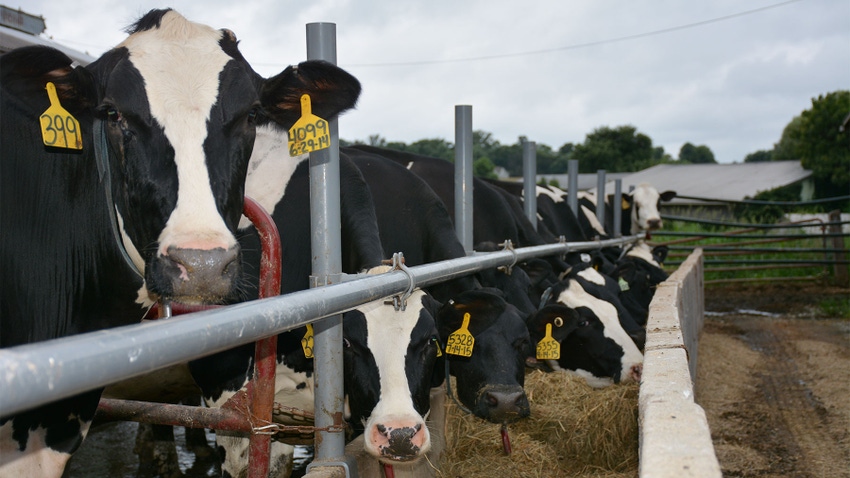April 12, 2024

Sustainable Chesapeake — in partnership with the Alliance for the Chesapeake Bay, Maryland Virginia Milk Producers Cooperative Association, The Dairy Alliance and the American Dairy Association North East — has received $1 million for water quality and climate change benefits on dairies throughout Pennsylvania, Maryland and Virginia.
The funding will allow the partners to:
Improve manure management on about 30 to 40 dairies.
Leverage an additional $9 million in Regional Conservation Partnership Program (RCPP) funding.
Partner with checkoff programs to educate consumers, farmers and other stakeholders about dairy farmers’ environmental stewardship efforts.
Pilot the first agribusiness-led effort in the Chesapeake Bay watershed to explore whether all conservation practices installed on member dairies are credited toward state water cleanup goals.
The partners will use funding from the National Fish and Wildlife Foundation to improve water quality and aquatic habitat by implementing agricultural best management practices and prioritizing riparian forest buffers. It is estimated that 20 acres of buffers and more than 130 conservation practices will be installed.
Many dairy farmers are unable to invest in the upfront cost of conservation. The partners will use NFWF funding to help fill financial gaps and accelerate conservation efforts. Specifically, partners will use funding from the project to leverage $9 million in RCPP funding to Sustainable Chesapeake and the Alliance for Comprehensive Nutrient Management Plan development and implementation on dairy farms.
To date, 37 farmers have expressed interest in developing nutrient management plans, and 14 farmers are ready to implement a plan.
The Susquehanna River provides about 50% of the bay’s total freshwater flow and is the largest tributary of the Chesapeake Bay. With nearly 4 million people and 33,000 farms, food production accounts for 26% of the land use and is the largest source of nutrients and sediment transported to surface waters.
Because food production is responsible for 40% of the phosphorus and 50% of the nitrogen loading into the bay, watershed implementation plans show that acceleration of conservation practices on animal and crop farms is needed to address water quality degradation and inadequate aquatic habitat for fish, wildlife and invertebrates.
For more information, visit allianceforthebay.org.
Sign up for Maryland cover crop program
Growers who plant less than 10 acres of qualifying cover crops, including cereal grains or cover crop seed mixes, may apply for Maryland’s Small Acreage Cover Crop Program. Financial assistance is capped at $1,500 per grower per year.
The program provides grants to help small farms and urban growers plant cover crops to build healthy soils, increase crop yields, protect local water quality and improve climate resilience.
Urban and small-scale producers may download grant applications on MDA’s website, which must be postmarked by April 30. Highlights of the grant include:
Maximum payment per grower is $1,500 per year.
Growers will be reimbursed based on paid receipts.
Eligible species include single cereal grains or cover crop seed mixes.
Cover crops may be planted in open plots or fields, raised beds, or in a high tunnel.
Growers should follow cover crop planting recommendations made by the seed manufacturer or by University of Maryland Extension for eligible species.
The Small Acreage Cover Crop Program is funded by the Chesapeake and Atlantic Coastal Bays Trust Fund, and managed by the Small Farm and Urban Agriculture Program.
Interested growers should contact Bill Tharpe, program administrator, at [email protected] or call 410-841-5869.
You May Also Like




